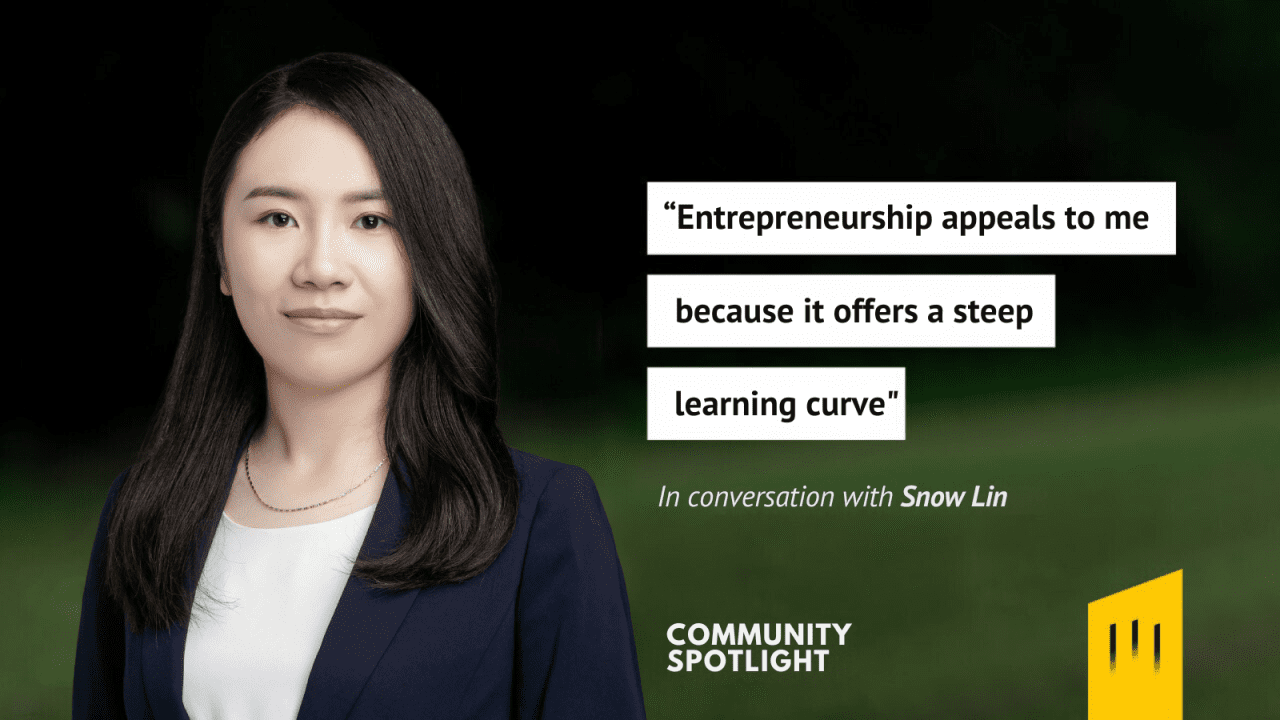“15 minutes with” is a Moonbase Capital series that picks searchers’ brains on current market conditions, what challenges they are facing and the actual technicalities of what it takes to be a Searcher.
For this edition we had the privilege to sit down with Xue (Snow) Lin, an entrepreneur hailing from the vibrant Yangtze River Delta near Shanghai. Snow’s journey has taken her from Zhejiang to Jiangsu and through a successful career at KPMG and an MBA from Fudan and Yale. Today, she shares her insights on entrepreneurship, her recent announcement about her Search Fund, and her unique perspective on the role of women in business negotiations within Chinese culture.
MC: You’ve recently started your Search Fund, and your LinkedIn post received a lot of attention. Can you tell us about your current plans and what’s next for your venture?
SL: I’m very grateful for all the support along this journey. Thanks again to my great investors, professor A.J and Yale cohorts. The pioneers, first searchers in emerging markets in Vietnam, Ireland and Russia. They gave me a lot of guidance on pre-launching plans.
As the concept is new in China, I am building a foundation before formally reaching out. I use social media to add more credibility on my Search Fund and enhance business owners’ trust. Next to this, i´m conducting essential activities like designing one-page compelling posters for broker distribution, and attracting potential sellers to connect with us.
MC: With your impressive educational background, you had various career options. What made you choose Search Funds?
SL: Many MBA graduates opt for stable careers to avoid risk and enjoy a relaxed life in big tech firms or fancy jobs in the finance industry. My previous job at KPMG involved analyzing historical data for fair financial statements and accuracy, but it was more history-oriented. I wanted work that is future-oriented, more related to future improvement, entrepreneurial efforts, and creation. That is why I did not choose more stable careers or large conglomerates. Entrepreneurship appealed to me because it offers a steeper learning curve, more self-initiated growth, and autonomy. It’s more interesting and exciting.
MC: Do you think your father influenced your career choice?
SL: My father’s life has been a series of highs and lows, and his journey in the lower-middle market taught me a lot about resilience and overcoming challenges. He even jokes about writing a book about his experiences. I believe his journey planted the original entrepreneurial seed in me.
MC: How do you plan to attract potential sellers? Will you use social media?
SL: Yes, social media is part of my strategy. I’ve engaged with financial advisors, M&A Association Union, magazines and social media to give more exposure to search funds and build connections. Meanwhile, I focussed on social media platforms like Zhihu and Wechat to talk about succession solutions and exit options to attract the right potential audience.
MC: What types of industries or companies are you targeting for acquisition?
SL: I have two to three primary targets, although the final acquisition might differ. First, the property management industry, given China’s dense urban living. It’s super recurring and fragmented. It also has diverse revenue streams like fees for placement and advertising in addition to the property mgt fee.
Second, I’m focusing on the bookkeeping sector, which my major and expertise can leverage. This niche market lacks digitalization and integration in China. It offers large potential for roll-up and technological advancement. Both industries can be equipped with powerful saas to accelerate.
Lastly, I’m exploring a B2C venture in the food industry, particularly mutton soup. This market is mostly run by small-scale operators, offering consolidation opportunities.
MC: Can you shed light on the role of women in business negotiations in Chinese culture, which may not be well-understood in Europe?
SL: Certainly. There’s a perception gap on social media between the West and China. When it comes to female entrepreneurs in China, being a woman shouldn’t be seen as an advantage or disadvantage.
China’s one-child policy has had an impact. In regions like the Yangtze River Delta, women often have higher incomes and are seemed as the apple in the eye within their families. They have a higher social status compared to Western China, also higher than that of Japan and Korea.
In cities like Shanghai, women are often seen as the stronger gender, which is unique to this region, showcasing the assertiveness of Chinese women in business.
MC: What will be the most challenging part of your journey?
SL: Currently, the challenge is finding owners who are ready to sell. Take my father for example; he has wanted to sell his property and factory for three years, but there is no mature route open, the channel is blocked. So after finding a pool of people like my father who have the real intention or need to sell, the following convincing process will not be as hard as the mature market. Both LPR rate and buyers market are benefiting us. So matching or closing the loop is currently the main focus.
MC: Is finding professional email addresses a challenge in China?
SL: Yes, it’s the same in China. Most elderly people seldom use email, and email addresses with a 9-digit number followed by ‘@qq.com’ make it hard to distinguish who the owner is, or whether the owner will see the content. We rely heavily on WeChat for communication.”
MC: Is there a platform in China similar to searchfunder.com for connecting buyers and sellers in the M&A market?
SL: No, there isn’t. The existing platforms in China lack transparency, often providing vague information without financial details or images. My goal is to create a platform similar to the Enterprise version of Taobao, making the process more accessible and transparent for buyers and sellers, just like searchfunder.com. In the initial stages, I am also searching for targets like this.
MC: Have you heard of the M&A Research Institution in Japan? They went public in four years. They act as a platform connecting sellers looking to retire, buyers like searchers, and growing corporations. They’ve shortened the transaction time from six to nine months to as little as 49 days, making it akin to a Taobao for enterprises. Given the similarities in how business transactions are conducted in China and Japan, I believe a similar platform can thrive here.
SL: Yes, it is a very good example and gave me inspiration for this kind of target. When communicated with other potential searchers, I have encouraged them to start a venture like M&A research institution. I can help collect potential sellers’ needs and input into the platform, and all the future searchers can be the potential buyers to solve the needs of succession. Cause I cannot be distracted from doing both search and venture, so I am really looking to collaborate with an ambitious searcher who can start this initiative.
MC: What are the exit opportunities for SMEs in China? For example, if someone wants to retire at 65, what options do they have?
SL: Currently, it’s difficult. There isn’t a mature exit route. Some owners keep networking with government department officers to seek buyers. Others close the business and leave assets, like factories and land, to generate rental income. There aren’t many choices to enter the free market.
SL: China’s search fund community is growing. We have received more than 50 potential searcher’s interests, some from investment backgrounds, mostly graduates from HBS, Wharton, Yale, and Columbia, half are female. It’s exciting. Also many potential investors and banks with sellers’ needs have approached us. Looking forward to holding a webinar more formally introducing search funds in the coming years.


